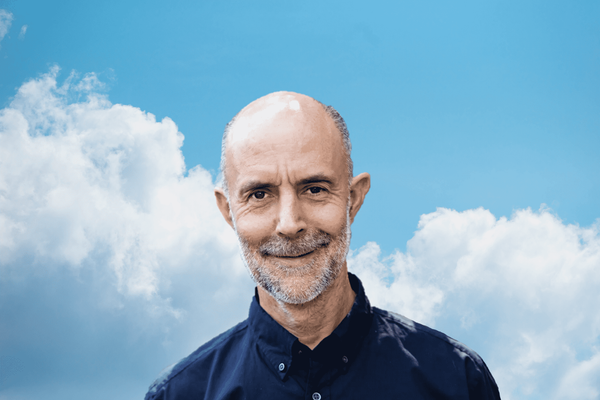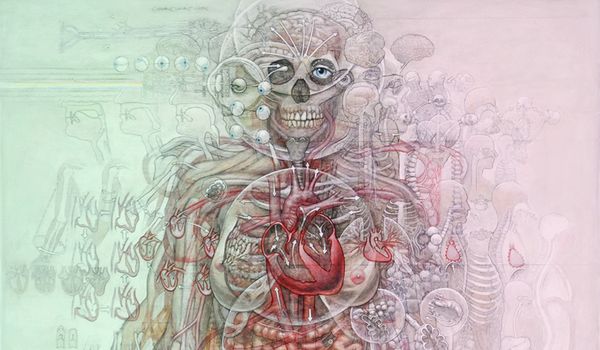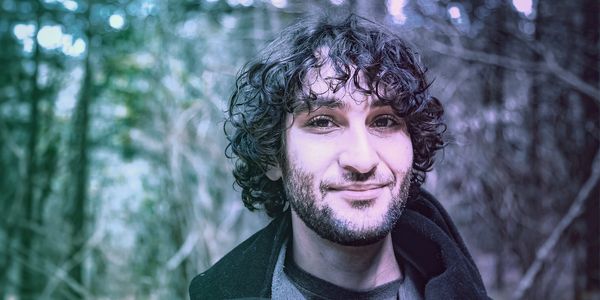Jordan Bates • • 10 min read
The Nomad’s Fountain of Youth: Travel as a Means of Expanding Time
Consciousness & Meditation Philosophy Psychology & Happiness

Many people have observed that time seems to accelerate as one gets older.
That is, one year of life at age 25 seems like a shorter interval of time than one year of life at age 15. Time seems to “fly by” more rapidly as youth gives way to adulthood and beyond.
Scientists have investigated this phenomenon, and though results are inconclusive, one notable study found that the question, “How fast did the last 10 years pass for you?” yielded a tendency for the perception of the speed of time to increase with age.¹
Diminishing Novelty: A Theory of Why Time Seems to Accelerate
I’m sure you’ve had the subjective experience of feeling that time was moving more quickly than before — whooshing past, phantom-like.
What causes this phenomenon? Why does time seem to accelerate as we age?
One answer, originally proposed by Pierre Janet in 1877, is that as we get older, single years become smaller and smaller portions of our total lifespan.
When you’re 5, a single year constitutes 20% of your life. When you’re 50, a single year constitutes 2% of your life. The argument is that this naturally makes single years seem like less and less significant chunks of time, as one ages. I find this theory compelling, but I also think there’s more to be said on the topic.
I was talking about this with some friends the other night, and someone raised the idea that the phenomenon of accelerating time might have something to do with novelty.
Consider this: When things and places are totally new to us, we’re naturally far more present, more mindful of our surroundings. Because there are so many previously unknown things to pay attention to, process, and assimilate into our understanding of the world, we notice many more details than usual.
And the more newness we notice, the longer and more significant any given day seems to become. I’m not exactly sure why this is. The density of novel and interesting sensory information in a given timespan seems to be positively correlated with how significant, lengthy, and memorable said timespan seems. As the density increases, one’s impression is of more things happening, of a day’s worth of eventfulness being compressed into an hour or even a few minutes.
“Okay, cool, but what does this have to do with why time seems to accelerate?”
The Routinization of Life
When we’re small children, the world is bursting with novelty. There are so many things and people and experiences we haven’t yet encountered. Things are aglow with brand-newness. Everything is a strange, giddy adventure for a while.
Then, gradually, as we enter the school system and start going through the motions of societal advancement, everything begins to become routine. By the time we’re ~17 or 18, life has probably become more of a routine than an adventure. And by the time we’re in our early-mid 20s, if we’re not careful, life becomes nothing more than routine. Our weeks and months become predictable. We do the same things in the same places, year in, year out.
Certain events — such as getting married or having kids — might disrupt the routine and introduce spikes of novelty, but over time that novelty is integrated into one’s routine and becomes the new normal as well. There seems to be a kind of gravity pulling life in the direction of becoming a routine affair, unless we actively resist this force in one way or another.
And, as I’ve suggested, the more life becomes routine, the faster it will seem to flow on by. Because nothing seems² novel, we stop noticing the details of our lives, instead experiencing the world in a kind of autopilot state. The weeks, months, and years seem to slip by more rapidly because we’re rarely mindful of our surroundings and because our memories of one year are hardly distinguishable from our memories of the next.
It turns out that the psychologist, William James, in his highly regarded 1890 tome, Principles of Psychology, espoused a nearly identical theory. James thought that time seems to speed up because in adulthood we experience ever-fewer memorable events. We often mark the passage of time by “firsts” (first kiss, first day of school, first family vacation), yet these “firsts” grow less frequent as we age, causing, James argues, “the days and weeks [to] smooth themselves out… and the years grow hollow and collapse.”
This seems somewhat depressing, but perhaps there are ways of counteracting this tendency of time to “smooth [itself] out.”
Means of Resisting the Routinization of Life
One means of resisting the time-accelerating, routinizing gravity of the aging process is good ol’ fashioned mindfulness.³ Being attentive to our sensory input, following our breath, and noticing new details in our environments give the impression of time expanding somewhat, of days growing longer and more significant. If one gets really good at being mindful, even routine life overflows with novel/fascinating moments.
Another method is to create or seek out artistic or informational novelty. Even if nothing changes in our external environment, our internal environments can be ever-changing. We can feed our minds with wondrous new music, books, essays, films, tweets, etc., or we can create our own. In doing so, we can disrupt the routines of our lives by introducing novelty.
Yet another method is to take walks, explore, and generally seek out new places and experiences in or near one’s home. This too will compress more eventfulness and novelty into single days and jar us out of autopilot mode.
Mindfulness, local exploration, and art seem like reliable methods of resisting the routinization of life, but there is another method that, in my experience, is most effective: traveling abroad.
The Nomad’s Fountain of Youth
When we travel — especially to foreign countries — we once again become like children, swimming in an ocean of novelty. Everything is fresh and unknown, and beyond that, everything is transient — the scenery changes frequently. The ubiquitous hyper-novelty, combined with the transience of the experiences, invites us to pay much closer attention, and we happily oblige. We naturally become orders of magnitude more mindful than we’re even capable of being in our home countries, and as a result, the world appears to be sparkling, charged with beauty and meaning.
This truth was once expressed quite eloquently in a post on Reddit by /u/78fivealive:
“[As to what mindfulness is like,] there can be no direct description of it, but it can be analogized.
Do you remember what it was like when you first traveled to a foreign country? Say it was Rome. Every experience on that trip felt like Rome itself. The airport itself was Rome saying welcome. Every interaction, from the cafe waiter, to the hotel desk clerk, to the museum guides, they were all expressions of Rome. The smell of traffic exhaust was uniquely Roman, as was the trash on the ground, the humidity after the rainstorm. All of these things were as Roman as the Coliseum. Rome was not a place, not a city, but a living experience. This is what happens when you see the world without the veil of identity and thoughts, and you are just a wanderer with no role to play.
When you go back home, the airport is just a bore. Traffic exhaust just smells like exhaust. Trash is an eyesore. Humidity is just unpleasant. The cab driver is rude. Even the landmarks are unremarkable. This is what happens when you see the world through your identity, the role you are obliged to play.”
/u/78fivealive notes that part of the reason we perceive the world in this way while traveling is because we naturally shed our normal roles and identities in favor of a more open, meditative, almost ontological awareness. It follows then that if one cultivates this awareness all the time through meditation and mindfulness, one won’t even necessarily need to travel to enter a mode of being in which one is aware of the ever-present novelty, surreality, and marvelousness of the world. Most people, however, do not cultivate this awareness, or else they try but aren’t able to get very far. In this case, travel can serve as a kind of launching pad to propel one into this awareness and teach one how to retain it when one returns to normal life.
Travel all but forces us into this hyper-mindful state of consciousness. In a single minute in a foreign country, one might notice 10 new and interesting details. By comparison, one might not notice 10 new and interesting details in a week of living out one’s routine in one’s home country, if one is deep in autopilot mode.
Consider the significance of that fact for a moment. When one recognizes that single minutes abroad can contain more time-expanding novelty than days or weeks at home, one can easily understand why a single day spent traveling or living in a foreign country can often feel so substantive, endless, learningful, and even profound — especially when held up next to the comparatively paltry experience of spending one’s day taking the same subway to the same office to do the same tasks for the same boss for the 10,000th time.
And, because of the mountains of novelty and the corresponding increase in mindfulness, one remembers travel experiences much more vividly than routine life. This increase in memory seems also to correspond to a sense of life lengthening, or at least gaining density. And, when one recollects time spent traveling or living abroad, one can easily distinguish between particular years and even particular months, which gives one a sense of life as an ongoing timeline of adventures and experiences, rather than a cycle of trivial sameness that repeats itself endlessly and sucks up 80% of one’s time.
For nearly 3 years now, I’ve been living a nomadic lifestyle, never staying anywhere for longer than a year, and in that time, I’ve found myself in 11 different countries and countless cities. When I look back on those 3 years, it seems like I’ve traversed a lifetime of experience. The last 3 years of my life feel as significant, if not more significant, than the 22 years that preceded them.
Read this: 11 Takeaways From 8 Months of Unemployed Nomadism
This is why I think traveling can be accurately characterized as a method for extending one’s life. It’s true that we can objectively measure the length of our lives by charting how many times the Earth encircles the sun in our lifetimes, but the experience of that time — how long it actually feels and how important it seems in hindsight — is subjective. If a great portion of one’s life slips by unnoticed or is lived on autopilot, one’s subjective experience of that time is such that one is only vaguely aware of it as it passes, and in hindsight it barely seems to have existed at all.
By contrast, when one is traveling, one feels hyper-alive, hyper-aware, and as I’ve said, this makes for days that feel wide, full, permeated with meaning, beauty, and significance. And in hindsight, that time spent traveling seems so vivid that it appears to have been more real than any other time.
It seems to me that these two effects combine to give the traveler a subjective experience of a life that is much longer and fuller than the life they might have lived if they had chosen never to travel. Again, I think mindfulness practitioners can achieve this same experience of life-expansion by cultivating an awareness similar to that which is thrust upon the traveler, but for those who don’t practice mindfulness or aren’t very good at it, traveling (especially abroad) is of unparalleled value as a means of cultivating the kind of awareness that makes life seem longer, fuller, riper.
To my mind, our aim should be to discover this awareness through whatever means possible and carry it with us in all periods of life, including the inevitable “normal” and “boring” ones. When seen from a certain vantage point, the supposedly mundane will also blossom forth with magical details — details which make our lives feel richer and more expansive. One of my favorite sentiments from Rilke seems especially germane here:
“If your daily life seems poor, do not blame it; blame yourself, tell yourself that you are not poet enough to call forth its riches; for to the creator there is no poverty and no poor indifferent place.”
In sum, by drastically increasing the density of novel experiences and heightening one’s awareness of those experiences, travel is a method of living that compresses more eventfulness into shorter timespans, giving the impression of longer, more significant days, weeks, months, and years. Use this information however you like. Best of luck to you.
Read this: How to Escape the Rat Race and Live a Radically Free Life
Footnotes:
[1] Interestingly, though, this pattern peaked at age 50 and remained steady until the mid-90s.
[2] It’s worth emphasizing that I’m suggesting that life tends to seem less novel to human beings, as we age. In actuality, each moment is completely and utterly novel, but if a moment is sufficiently similar to many other past moments we’ve experienced, it feels routine, and we don’t really notice it as it passes us by. If we become truly mindful, routine life can burst with novel/fascinating moments, but for most people, this is not the case.
[3] It’s worth noting that there are valid critiques of ever-more-popular Western mindfulness practices. Some argue that “McMindfulness” and “Western Buddhism” generally are ideal ideological counterparts to neoliberalism and often reinforce an unsustainable status quo. If you’re interested to learn more about these critiques, this article and this article would be great places to start.
This article was originally published in HighExistence Magazine. Issue #4 is now available.



Jordan Bates
Jordan Bates is a lover of God, father, leadership coach, heart healer, writer, artist, and long-time co-creator of HighExistence. — www.jordanbates.life












